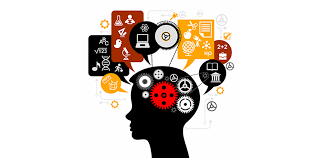Knowledge is often known as the foundation for progress and personal growth. However, there are a bunch of people who think that claiming knowledge ultimately leads to unhappiness. While this proposition may hold some truth in certain situations, it is essential to explore the nuances and consider the overall impact that knowledge has on human emotions and well-being. It may seem counterintuitive to claim that knowledge contributes to unhappiness. After all, education and learning are widely valued and celebrated in most societies. However, those advocating for the idea that knowledge makes people unhappy argue that the more one knows about the complexities and harsh realities of life, the more disillusioned and discontented they become.
One key aspect of the argument is the sense that knowledge tends to bring individuals face-to-face with uncertainty and existential dilemmas. As humans, we long for stability and assurance, and increased knowledge can often shatter our illusions. For instance, learning about the devastating consequences of climate change or the fragility of our personal relationships may leave us disheartened and disillusioned.
Another facet of the argument centers around the burden of responsibility that knowledge often carries. As one becomes more aware of societal and global issues, one may feel compelled to act, address, or even shoulder the responsibility for solving these problems. This stress can potentially lead to dissatisfaction and difficulty in finding personal happiness, as the weight of societal expectations and obligations grows heavier.
It is crucial to recognize that the concept of happiness is deeply individualistic and complex. While knowledge may lead to disheartenment in some instances, it also enables personal growth, resilience, and a deeper understanding of oneself and the world. Happiness can be found in the process of self-discovery, in cultivating meaningful relationships, and in contributing to a larger purpose or cause. While knowledge may disrupt our preconceived notions, it ultimately broadens our perspectives and allows us to seek happiness in new and profound ways.
In conclusion, the notion that knowledge makes people unhappy is a complex and multifaceted argument. While it is true that knowledge can reveal uncomfortable truths and impose significant stress, it also unlocks countless opportunities for personal growth and fulfillment. Rather than viewing knowledge as the source of unhappiness, it is more accurate to perceive it as a catalyst for personal and societal progress. By accepting the challenges that accompany knowledge, we can navigate our paths to happiness, and encourage a sense of purpose along the way.

